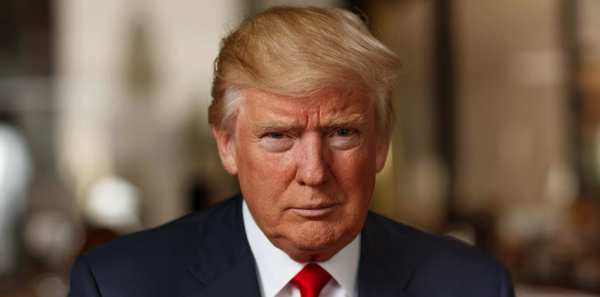 Parler
Parler Gab
Gab
- The Trump administration introduced a national advertising campaign using mobile technology and financial incentives to encourage illegal aliens to self-deport, marking a shift from traditional enforcement methods.
- Led by DHS Secretary Kristi Noem, the initiative offers illegal aliens up to $1,000 and a free flight home to self-deport through the CBP app.
- Unlike past programs, "Ticket Home" utilizes the CBP Home app for accessibility and efficiency and provides financial incentives to attract individuals who may be struggling financially or wish to avoid detention costs.
- While previous administrations have attempted similar voluntary departure programs with limited success, this campaign leverages modern technology and incentives, reflecting a broader trend in using financial penalties and incentives in immigration enforcement.
- The campaign has sparked debate, with supporters praising its humane and cost-effective approach and critics questioning its effectiveness in addressing the root causes of illegal immigration. Immigration attorney Maria Gonzalez expressed skepticism about the program's ability to compel voluntary departure.
Historical context: A shift in strategy
The campaign is not without precedent. Previous administrations have explored similar strategies, albeit with varying degrees of success. In 2004, the U.S. government launched the "Operation Scheduled Departure" program, which offered illegal aliens the chance to self-deport without fear of prosecution. However, the program was largely unsuccessful, with very few participants. The Trump administration's approach differs in several key ways. First, it leverages modern technology through the CBP Home app, making the process more accessible and efficient. Second, it offers financial incentives, which may appeal to individuals who are struggling financially or who wish to avoid the costs and uncertainties associated with detention and forced removal. The campaign also reflects a broader trend in immigration enforcement, where financial penalties and incentives are increasingly used to deter illegal immigration and encourage compliance. Since President Donald Trump took office, DHS has issued nearly 10,000 fine notices to illegal aliens, marking an escalation in the administration's financial enforcement strategy.The broader impact
The "Ticket Home" campaign has sparked debate among policymakers, immigration advocates and the public. Supporters argue that the program offers a humane and cost-effective alternative to traditional enforcement methods, while also providing individuals with a pathway to return to the United States legally in the future. Critics, however, question the effectiveness of the program, suggesting that it may not be sufficient to address the underlying issues driving illegal immigration. Immigration attorney Maria Gonzalez expressed skepticism about the campaign's potential impact. "While the idea of self-deportation with financial assistance might sound appealing, the reality is that many people will not leave voluntarily," she said. "They have built lives here, and the threat of fines and detention may not be enough to compel them to go." In the end, the "Ticket Home" campaign is a reflection of the complex and often conflicting forces that shape immigration policy. It remains to be seen whether this new approach will achieve its intended goals, but it is clear that the conversation around immigration enforcement is evolving, and the stakes are higher than ever. Find more stories like this at InvasionUSA.news. Watch the video below that talks about Trump's move to deport illegals regardless of what courts say. This video is from Cynthia's Pursuit of Truth channel on Brighteon.com.More related stories:
U.S. to impose new "visa integrity fee" on millions of foreign visitors. Trump orders visa suspensions on 19 countries due to national security concerns. Trump directs ICE to arrest protesters who attack officers.Sources include:
YourNews.com YouTube.com DHS.gov Brighteon.comShield Arms unveils modular pistol system: Glock-compatible firearms with aluminum frames
By Finn Heartley // Share
Trump’s $50B tariff policy shakes global markets as U.S. eyes manufacturing dominance
By Willow Tohi // Share
ICE launches historic hiring blitz with $50K bonuses amid border crisis
By Ava Grace // Share
Trump vows to issue executive order to stop “debanking” of conservatives
By Laura Harris // Share
Governments continue to obscure COVID-19 vaccine data amid rising concerns over excess deaths
By patricklewis // Share
Tech giant Microsoft backs EXTINCTION with its support of carbon capture programs
By ramontomeydw // Share
Germany to resume arms exports to Israel despite repeated ceasefire violations
By isabelle // Share










